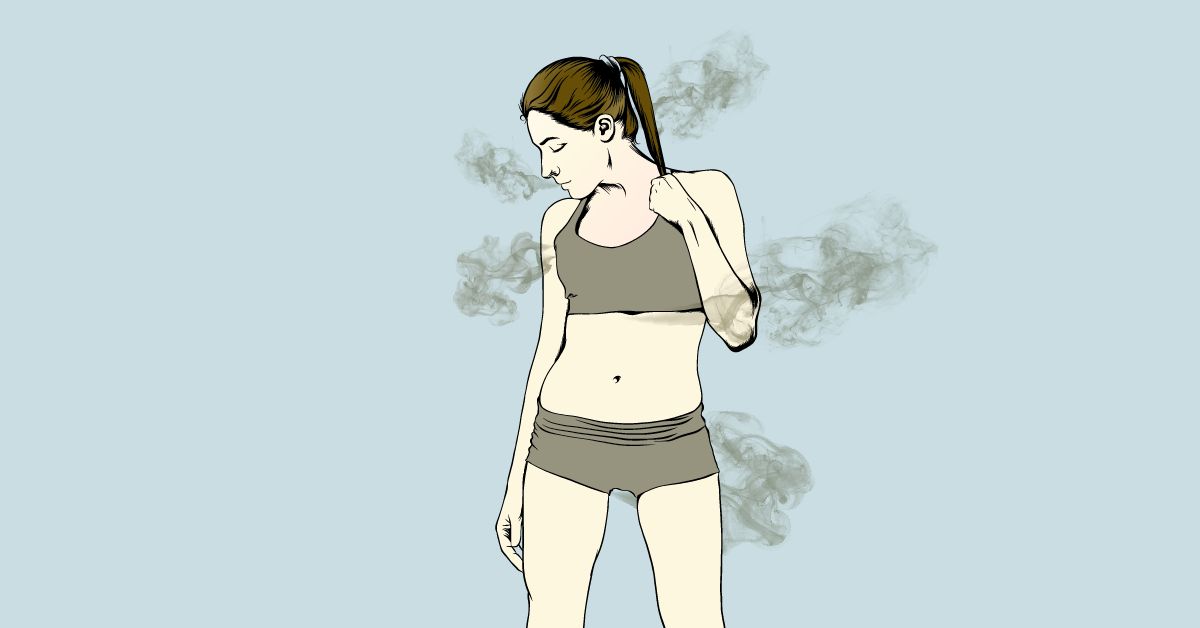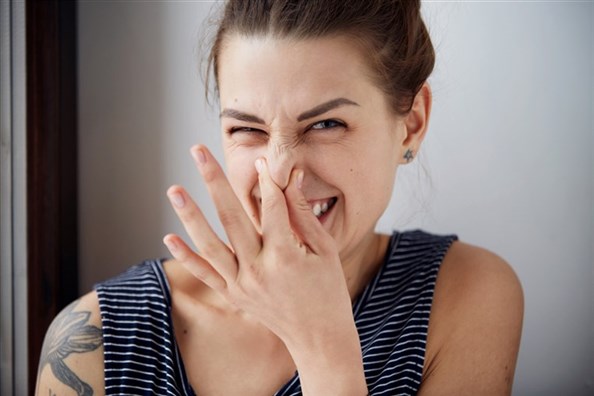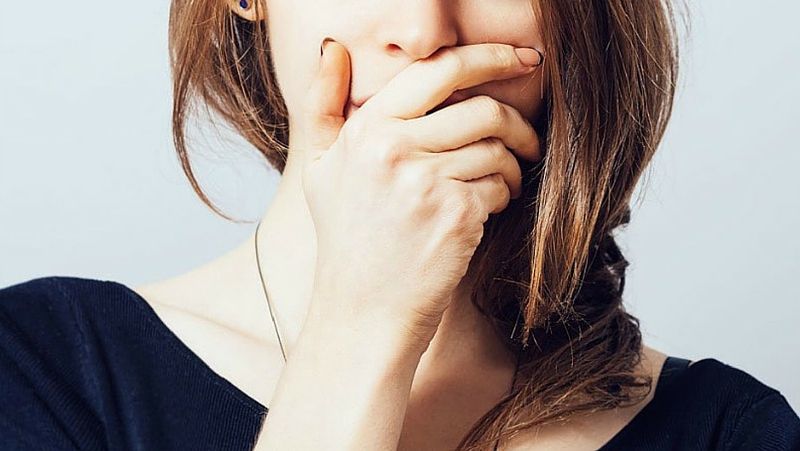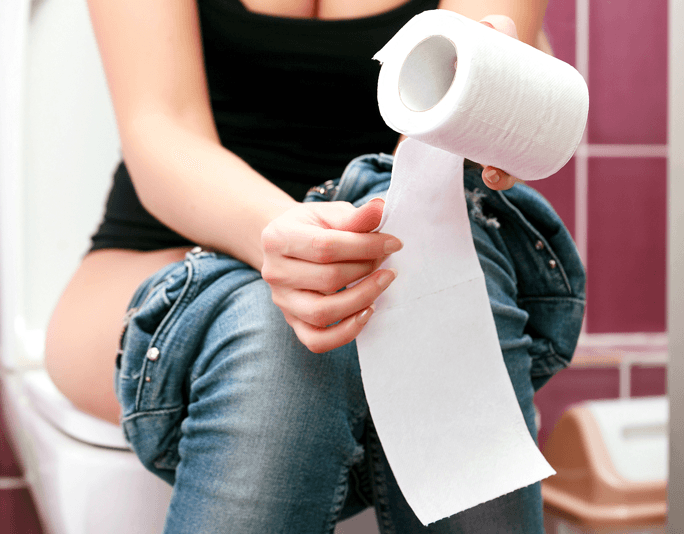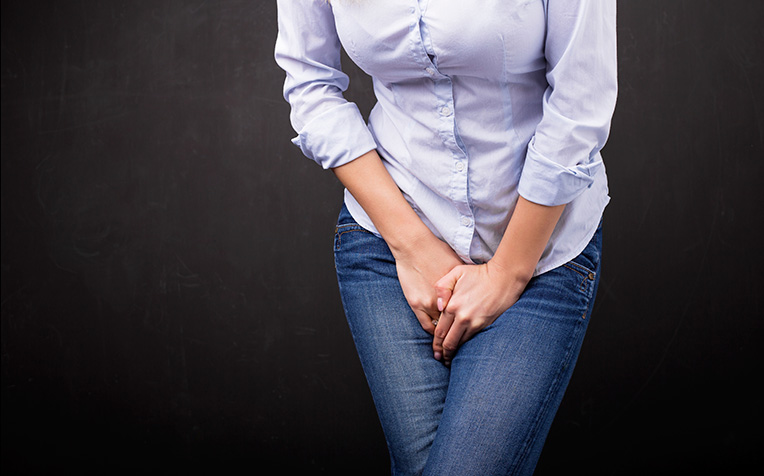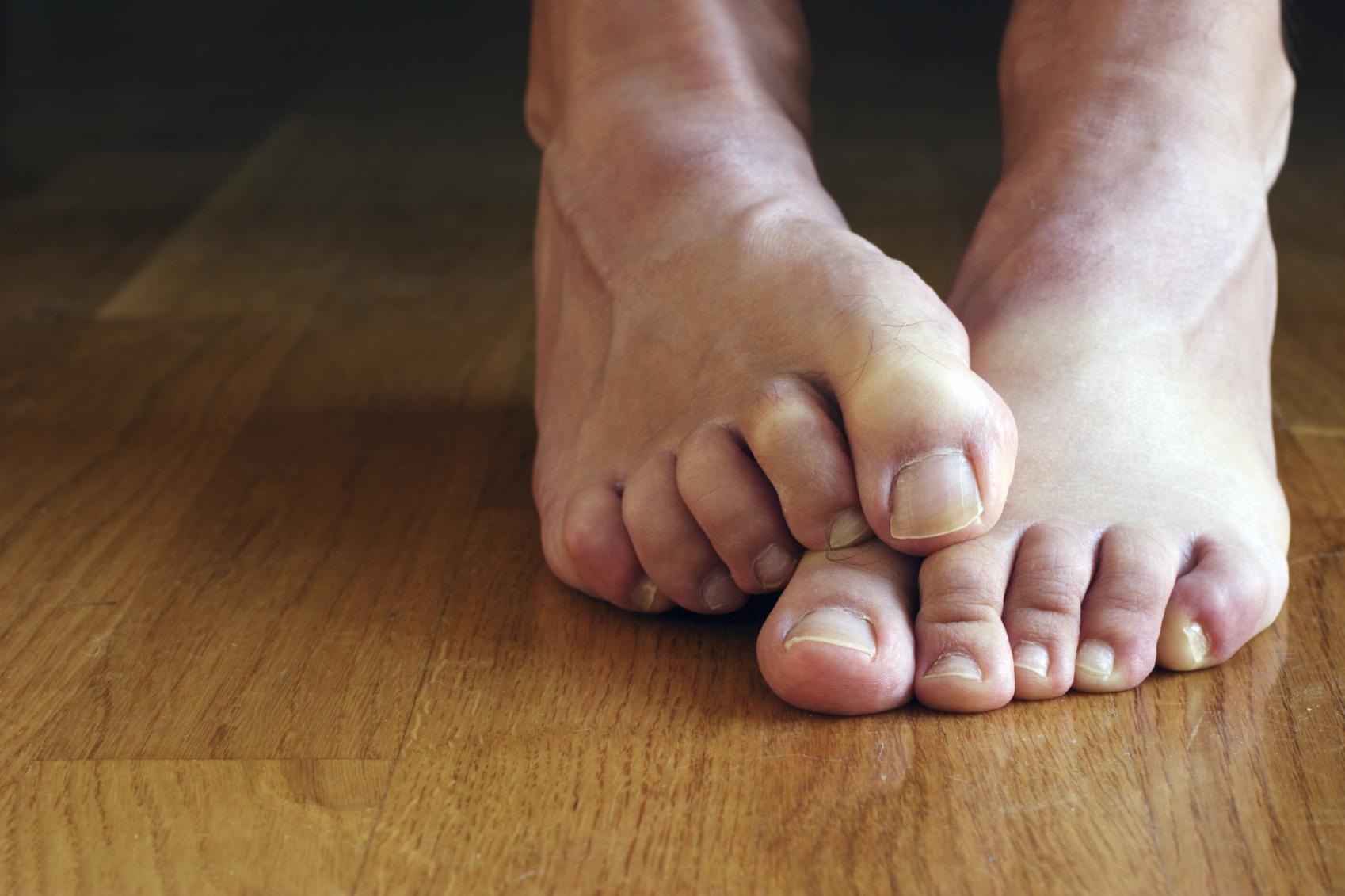From smelly feet to funky breath, these odors may seem pretty common, but a persistently poopy smell coming from any one of these five body areas can indicate that something more serious is going on.
If a quick shower, swipe of deodorant or a scrub of minty-fresh toothpaste doesn't solve your doo-doo dilemma, then you will want to pay quick attention to why.
Our body odor can be a red flag that alerts us to serious ill-health. According to a recent Swedish study, some diseases actually create a unique odor that emanates from different sources on the body.
Fruity Breath : Diabetes
One of the complications of diabetes is known as diabetic ketoacidosis (DKA). It happens when the body runs low on insulin, causing blood sugar to spike.
More often than not, people with Type 1 diabetes experience DKA compared with people suffering from Type 2 diabetes.
Since your body doesn't create enough energy to function, it breaks down fatty acids for fuel. One of those acids (acetone) emits a fruity smell from your breath. Although it sounds sweet, this smell has some pretty sour effects.
People with DKA vomit and urinate frequently, which causes their body to dangerously lose fluids at a rapid rate.
If you notice a fruity odor on your breath, along with fatigue, dry mouth, difficulty breathing or abdominal pain, head to emergency ASAP.
If your partner says poo-poo when you lean in for a morning kiss, you might have this chronic problem...
If we can learn to be more mindful about how our bodies react to the foods we put in them and the environment we surround them with, we can become our own first responders.
Every day, our bodies give us subtle clues that indicate when something is not quite right, or a little bit off in your carefully balanced system.
One way in which we can tell that something is off is by the odors our body emits. Although we all get a little stinky when we sweat, that usually washes off with a cool shower and some soap. It's the lingering stench that we've got to watch out for.
Stinky Breath: Sleep Apnea
If your normally loving partner pulls away in the morning, and refuses to smooch until you've brushed your teeth, you know you've got a bigger problem than the occasional morning breath.
If you brush and floss regularly at night before going to bed; yet you still wake up with rank breath, you could be dealing with sleep apnea.
This chronic disorder causes you to periodically start and stop breathing while you sleep. It happens randomly throughout the night, causing you to have dry mouth - a common cause of bad breath.
Breathing like this permits bacteria to breed more easily in your throat. Certain kinds of bacteria make a sulfurous gas that gives your breath a rotten egg smell.
If you've got sour breath, daytime sleepiness and snoring - and you've ruled out all other causes of bad breath - look into getting tested. It's also good to know that sleep apnea is linked with diabetes, high blood pressure and heart disease. If you suffer from any of these conditions, bring your symptoms up to your doctor.
Super Smelly Poop: Lactose Intolerance
If your gas or poop smells extra raunchy after you've consumed dairy, you may be unable to digest lactose.
Our small intestines produce an enzyme called lactase that breaks down lactose, a sugar found in dairy products. When you don't produce enough lactase, your small intestine will send lactose straight to your colon (instead of your bloodstream) where the gut bacteria ferments it.
Fermented lactose results in loose, foul-smelling stool, bloating and stinky toots.
Although the reactions vary from person to person, according to the National Institutes of Health, 65 percent of people have trouble digesting dairy. If you're one of them, you might consider checking with your doctor.
There are several reasons why you're feeling extra gassy, and it's important to rule out more serious intestinal issues like Crohn's disease, which also cause extra foul feces.
Unless you're eating plenty of asparagus, your urine shouldn't smell to strongly, but if it does, here's why...
Fungus and bacteria are two common culprits of extra stinky body odors. They both multiply quickly, causing discomfort as well as an unfortunate smell.
It's pretty common knowledge that the foods we eat affect how odorus elimination will be after digestion. In fact, some fruits can even change the smell downstairs.
But, if you've been eating a varied diet and still notice some changes in the way your urine smells, it might be time to check in with your family doctor. Additionally, if your feet are extra ripe - no matter what kinds of shoes you wear - you could be growing fungus.
Putrid Pee: Urinary Tract Infection
One of the more common causes of stinky pee is a urinary tract infection (UTI), which produces an almost chemical scent to urine.
You know you've got a UTI when you experience a burning feeling, have dark, cloudy urine and need to pee frequently and intensely.
UTIs are more common in women because our urethras are shorter. A buildup of bacteria - typically E.coli - enters the urinary tract and urethra, then multiplies in the bladder, which causes the infection.
If any of this sounds familiar, schedule an appointment with your family doctor.
Smelly Feet: Athlete's Foot
Do your shoes always smell bad? Is the skin on around your toes dry and scaly with redness and blisters? According to the American Podiatric Medical Association (APMA), you might have athlete's foot.
The odor you've noticed is caused by a combination of fungus and bacteria that erodes the webs of skin between your toes. Be careful not to scratch your feet and then touch another part of your body - you can spread the fungus to other areas like your groin or armpit!
Although it might not seem like a dangerous thing, if left unchecked, athlete's foot can develop into more complicated conditions such as cellulitis - a bacterial infection of the skin's soft tissue.
Try an over-over-the-counter treatment like Lotrimin or Tinactin for a couple of weeks. If that doesn't work, schedule an appointment to speak with your doctor for a stronger treatment. In the meantime, try to keep your feet dry by using talcum powder in your socks and shoes.
[h/t Women's Health / SAGE Journals]
